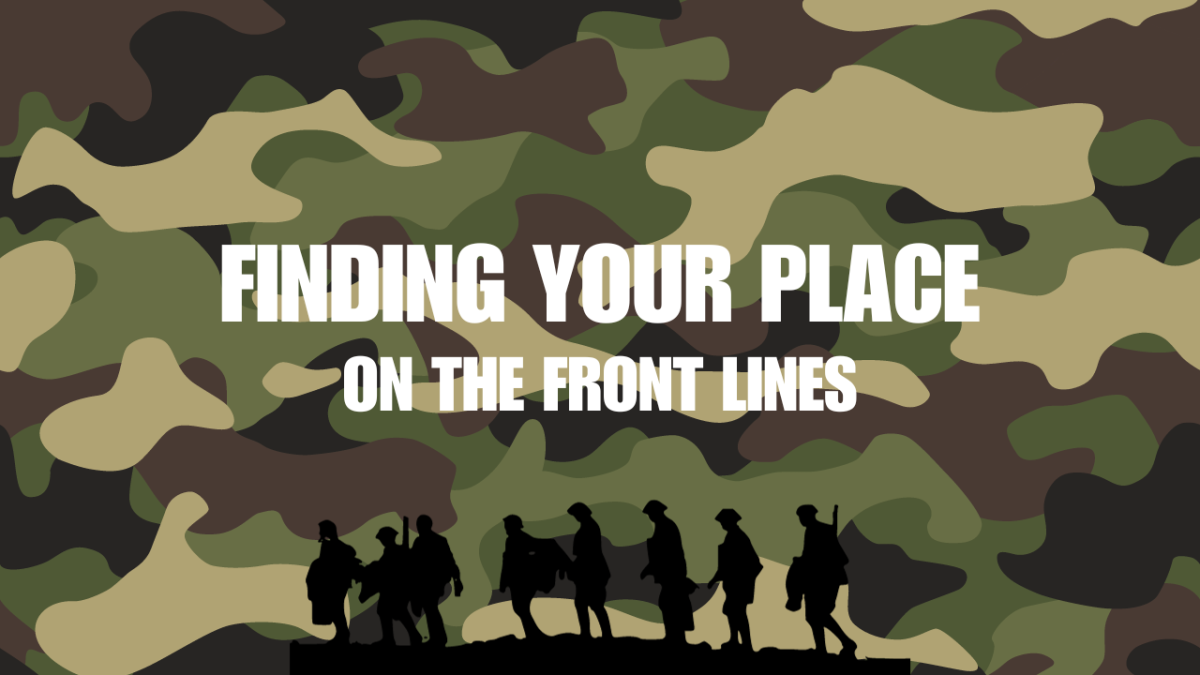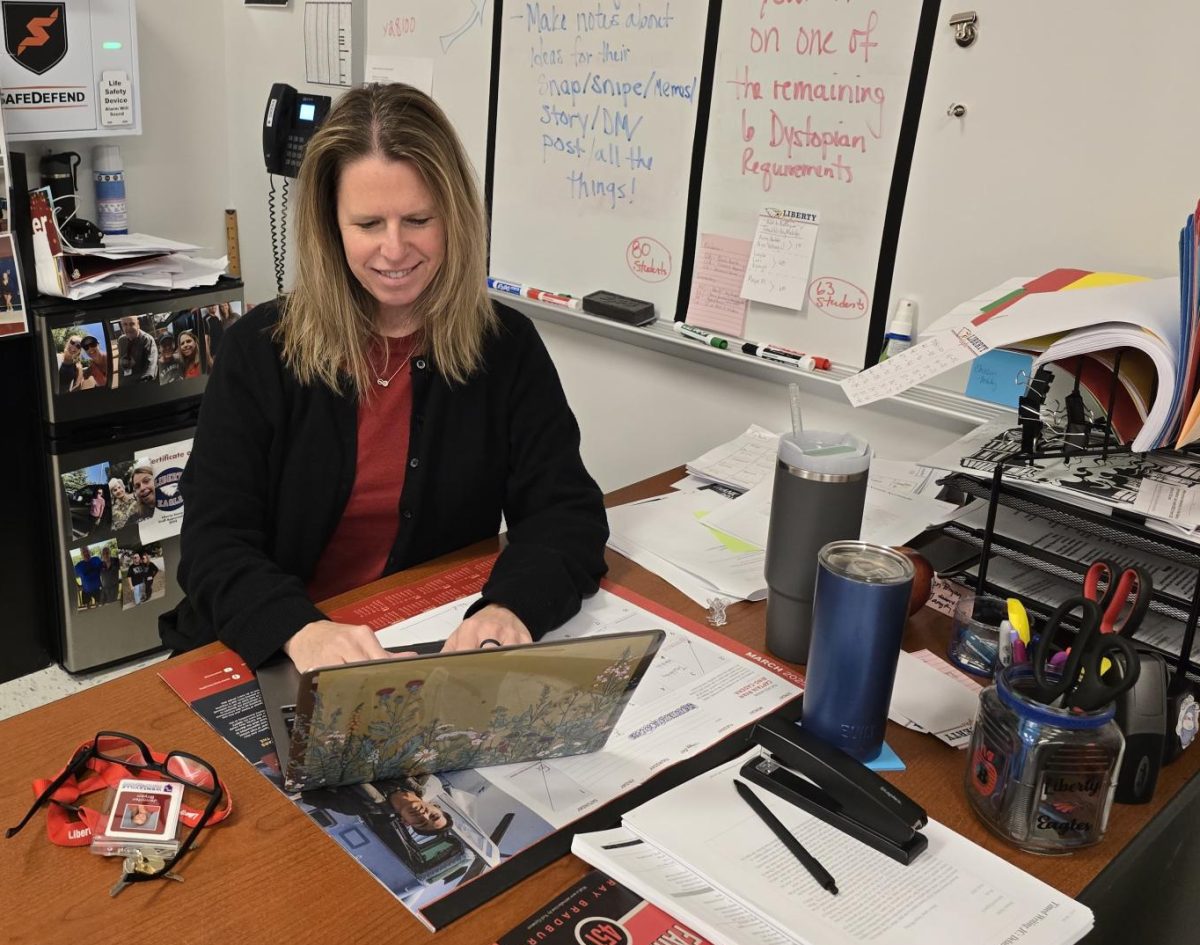Finding your place outside of high school is a huge commitment. When you leave here, it’s up to you to pave your own path and figure out where you want to take your life. These decisions, these thoughts start during high school. I am sure you have heard the question, “what do you want to be when you grow up?” all throughout your life. But now that question holds more of a meaning. My hope is that through these articles students will be able to find an occupation that truly interests them. When choosing a career, we should use all the resources we can get.
Getting into contact with an Army recruiter is widely available to students in the district, you have most likely seen their table in the lunchroom. This is an amazing opportunity to learn if joining the Army is the right path for you. Sgt. 1st Class Adam Robb is the Station Commander for the recruiting office of our school district. He has been in the Army for 23 years having joined at 19. During his senior year in high school, Sgt. Robb got accepted into Southeast Missouri State. Sgt. Robb says that it came to his attention when joining college that he was not emotionally prepared for it and reached out to his former recruiting officer.
“In 30 minutes I was like, ‘yup this feels more like me,’” Robb said. As Station Commander, Sgt. Robb has many responsibilities. He is in charge of everything that occurs at their recruiting office, and anything from ‘prospecting’ to establishing community events. Prospecting is what they call reaching out to juniors, seniors and high school graduates. Sgt. Robb facilitates and processes the applications and trains his recruiters in his office on the “dos, don’ts and the hows.” If you are even considering what the Army could offer you, taking a trip down to the Army Recruitment Center in Wentzville would be the place to start.
There are many common misconceptions about enlisting in the military. One of the biggest ones is that when you enlist in the military, you are there until you retire. This is simply not true in all cases. Sgt. Robb states that, “About 50% of the people that join the military are career, which means 20 years. The other 50% varies from 3-12 years, whatever the case may be. And it’s no harm no foul, the military is going to ask everything from you and the expectation is that you are going to get everything out of the military that you can.” Quite a few jobs in the military have a civilian equivalent. The transition from military life to civilian life is significantly easier if you’ve selected a job with a civilian equivalent. Speaking with your recruiter, or searching online could give you an idea of what kind of jobs in your dream field are available in the Army.
As with many other applications, there are certain sections you need to be eligible for in order to apply. For the Army, there are four benchmarks: passing the ASVAB test, being 17 years of age, moral, and medical. For the ASVAB test (Armed Services Vocational Aptitude Battery), you have to get a passing score, which for the Army is a 31. Depending on your score, you will be eligible for varying jobs. The second benchmark is being educationally eligible, being 17 years of age. Sgt. Robb states that the reasoning behind that is, “that all of our contracts are based on training seats or training vacancies so how that lines up is basic training has to then coincide with a direct correlation for your advanced individual training where you’re going to learn your job that the army wants you to do. We have to project that, like looking 365 days in the future. The reason why we have to wait until you are 17 is because you can be a senior but I can only reserve a job seat for you for 364 days.” The third requirement is “moral,” this is any altercations, interactions or charges of any kind with any law enforcement agency. Depending on the degree of the altercations, it might be able to be waived. The last benchmark that you must meet in order to apply is the medical. This one is very complex, Sgt. Robb says, “we look deep into your medical history and there are varying rules and regulations that can and cannot be accepted. Realistically, we are not the approval authority for those things, we are that conduit for those people that will make that decision.”
Another common misconception is that while you are in the Army you won’t be attending college. The military forces you to be a lifelong learner, for certain ranks they will expect you to have an associate, bachelors or even a masters degree. Sgt. Robb says that, “With any of our jobs they all correlate to college transfer credit. Depending on what job you pick and how long the training is, the corresponding credit hours you get vary. The amount of credits you get for basic training and individual training is all transferable. The Army paid me the whole time I was getting the college credits.” Along with this, those enlisting won’t be going into the military blind. Between the signing of the contract and you leaving for training, the Army takes care of you. Sgt. Robb says that, “For people that never had a family member in the military or never seen what that’s like they get an idea of what their lives are going to be like.”
Figuring out your career path is hard, there are endless possibilities. For Sgt. Robb, college wasn’t right for him at the time. He said that serving in the Army has been the greatest honor of his life. Although this might not be the right path for you, it never hurts to check it out especially if you are still unsure of where you want to go after graduation. Here’s to finding our places out in the world, and as Sgt. Robb said, “Don’t be afraid to learn, to make a well rounded educated decision.”















